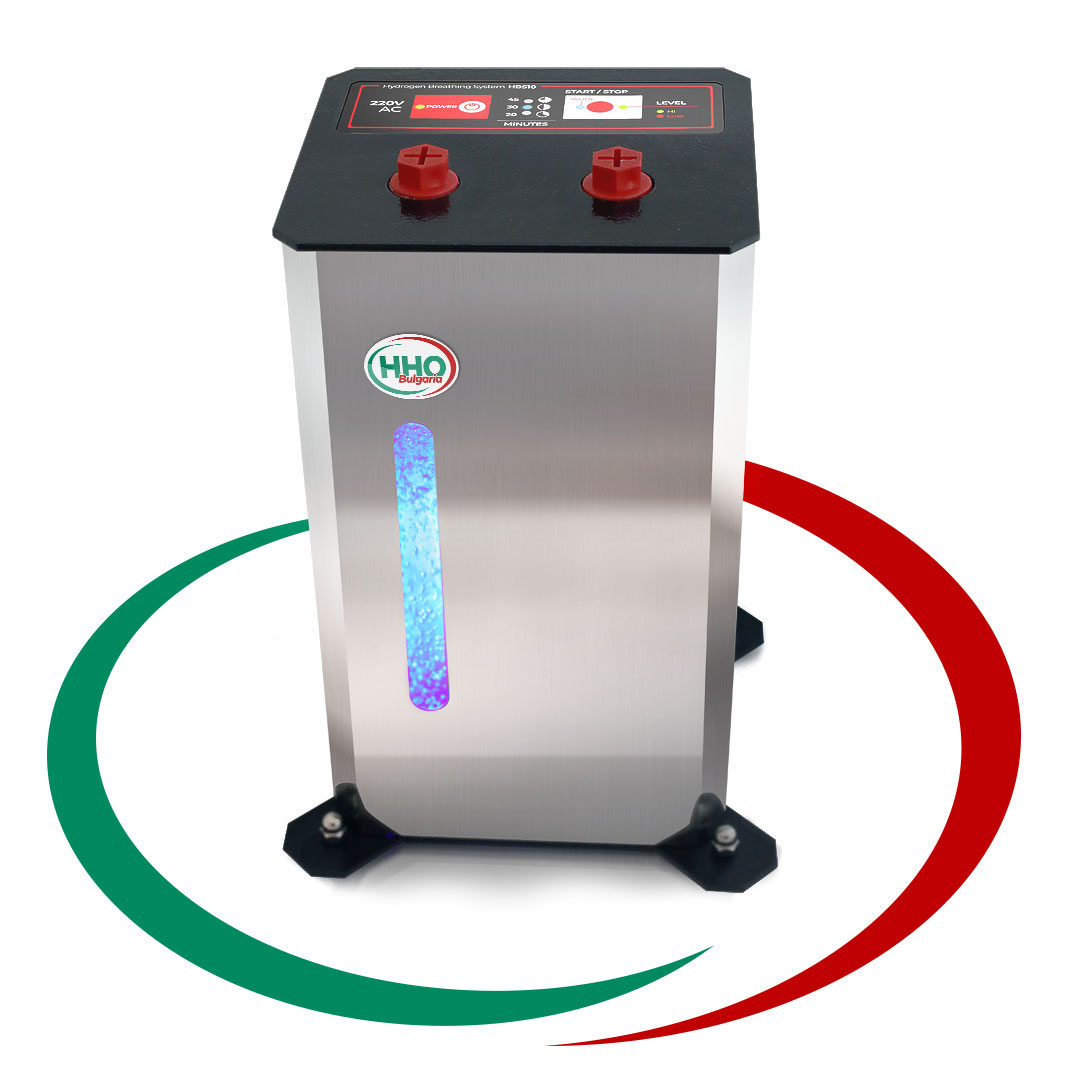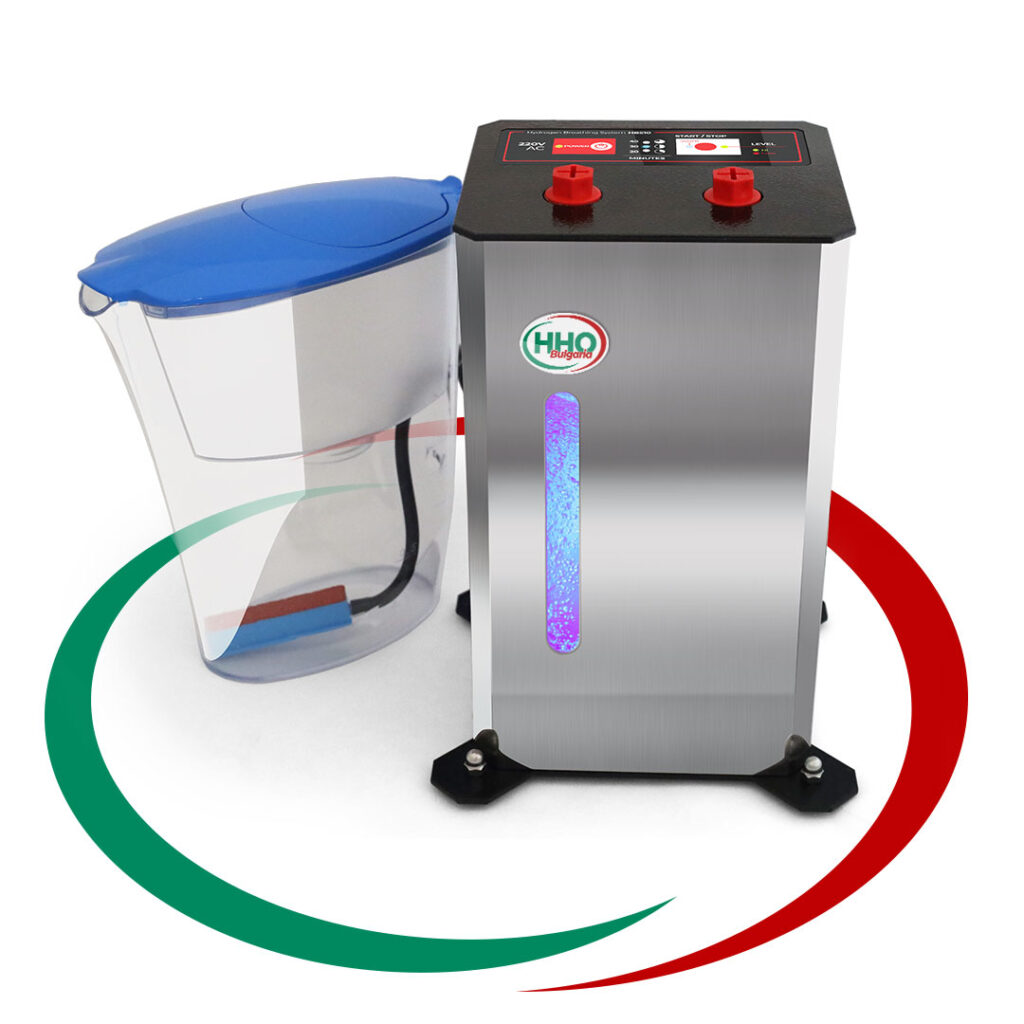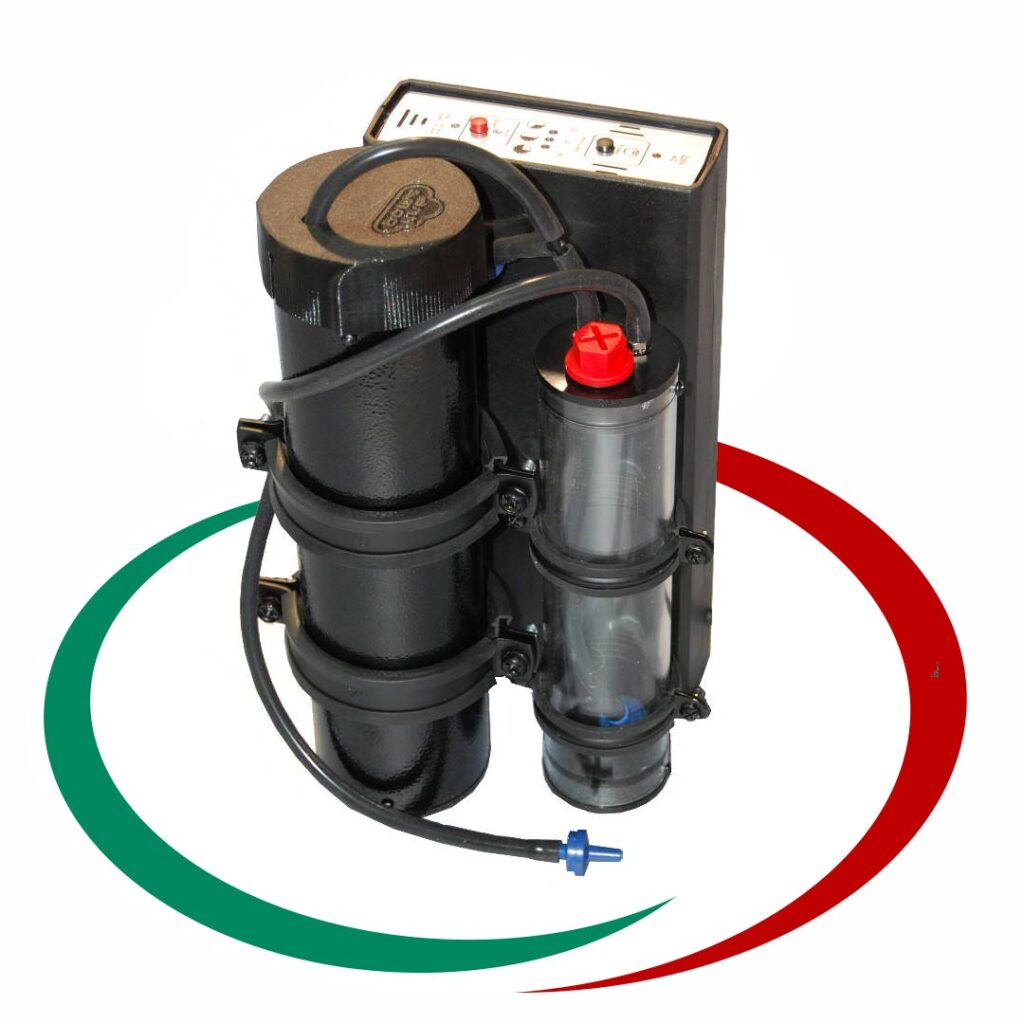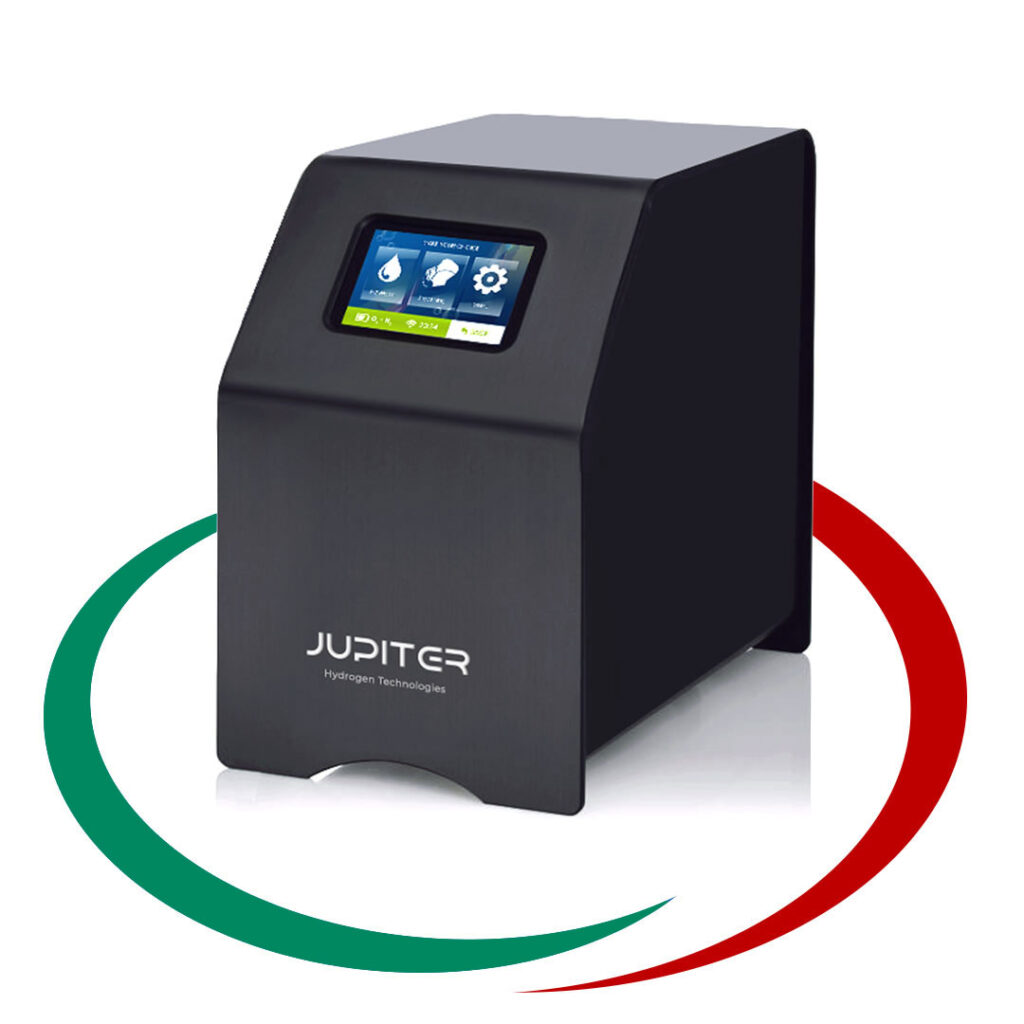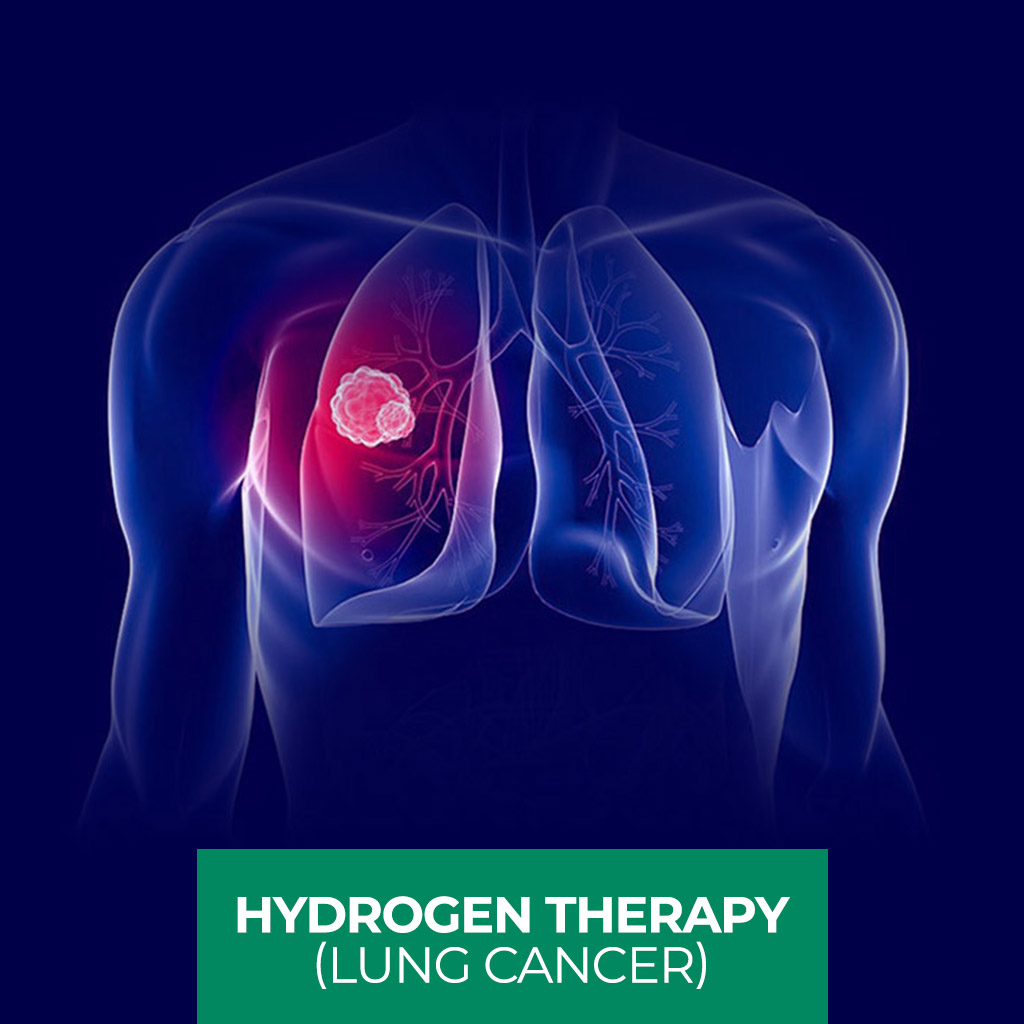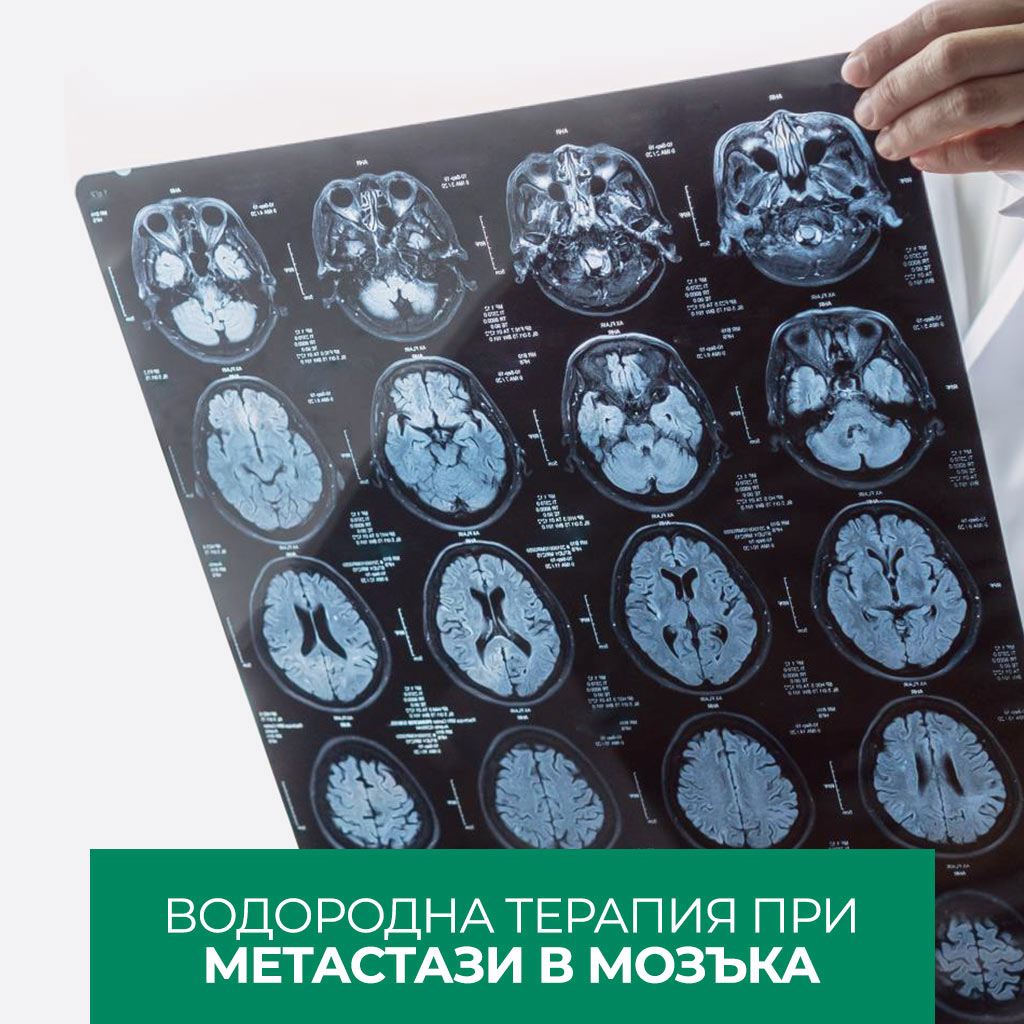Hydrogen Therapy at
Alzheimer’s disease
Prepared by: Dr. Ivan Vlasov
Hydrogen Inhalations lead to noticeable improvements in Alzheimer’s disease
According to a pilot clinical study conducted in Japan, hydrogen therapy leads to impressive improvement in patients suffering from Alzheimer’s Disease.
The results of the study also show that hydrogen inhalation provides not only temporary relief, but also maintains the effect for at least 6 months after discontinuation of Hydrogen Therapy.

Alzheimer’s disease
the potential of Hydrogen Therapy as an innovative treatment
Alzheimer’s disease is the cause accounting for approximately 55% of dementia cases in the third age, followed by vascular dementia – 15%, mixed dementia – 8%, dementia 8%, diffuse Lewy body disease 8%.
Alzheimer’s disease is a progressive and fatal disease that causes a decline in cognitive function, memory and behavior. All this disrupts the patients’ normal rhythm of life.
It is generally accepted that the accumulation of beta protein induces neurological death in Alzheimer’s disease.
Oxidative stress caused by free radicals plays an important role in the pathogenesis of the disease. It affects the expression (production) of many genes that regulate the pathological phenomenon of increased production, TAU protein modification .
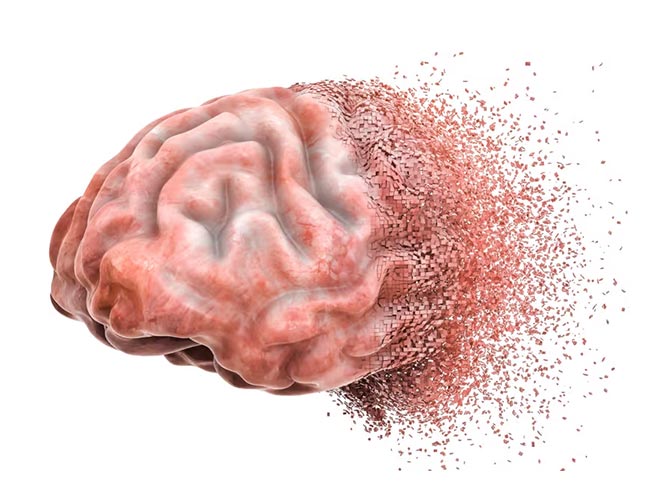
The proven Anti-oxidative effect of Hydrogen Therapy
Free radicals
Free radicals have been scientifically proven to disrupt red-ox homeostasis, leading to cellular oxidative stress.
This is precisely the cause of damage to the cells that make up the human body.
In short, for this reason free radicals have been linked to the onset of almost all known age-related diseases – both Alzheimer’s and:
- ☑ different types of Cancer;
- ☑ Diabetes;
- ☑ Asthma and COPD;
- ☑ Arthritis;
- ☑ Atherosclerosis;
- ☑ many more…

healthy cell
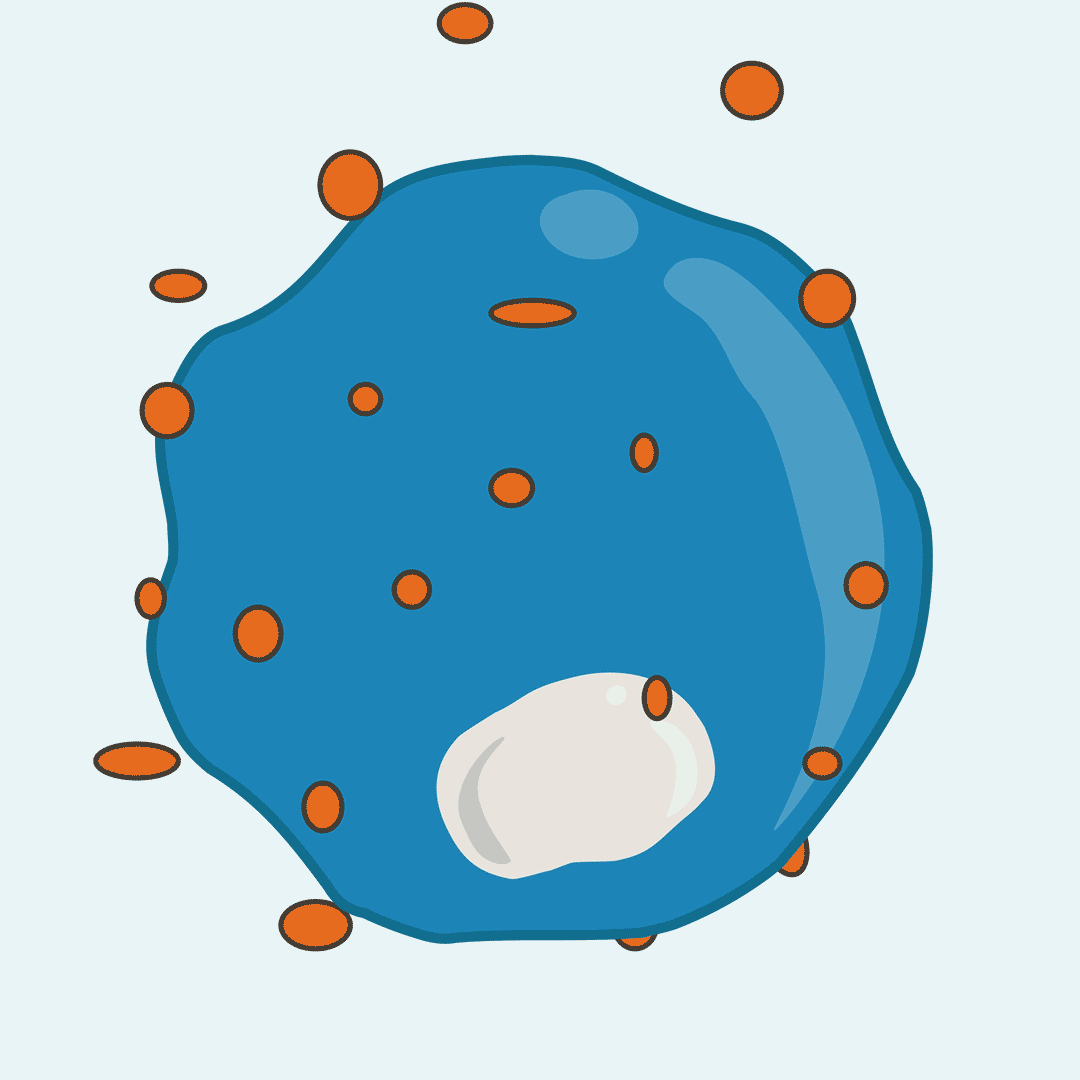
cell attacked
from free radicals
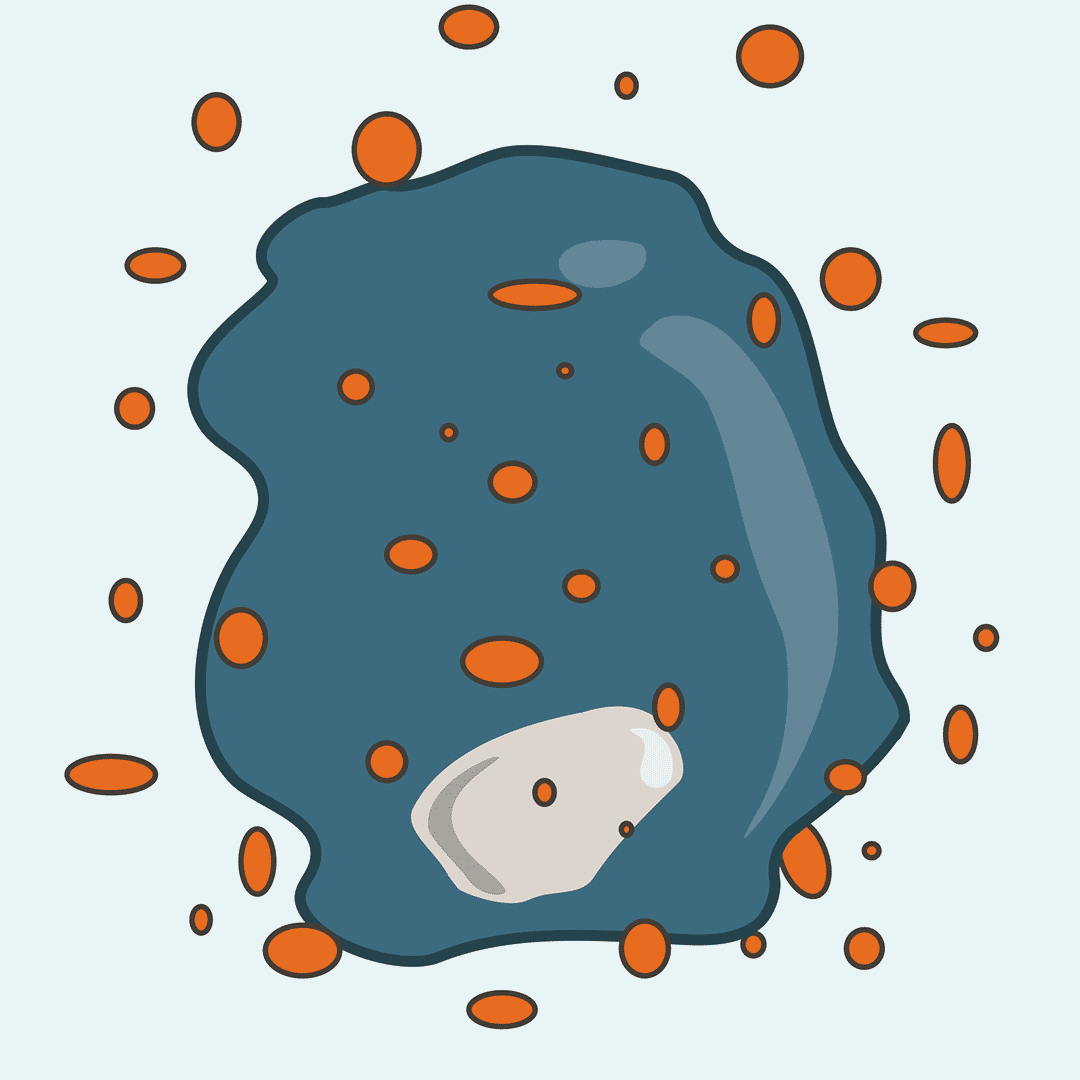
oxidative stress caused by
the free radicals
Hundreds of scientific publications unequivocally show that, thanks to its unproven antioxidant properties, hydrogen reverses this process and suppresses the progression of all types of cancer.
According to the pilot study discussed in this article, the pronounced antioxidant effect of hydrogen helps to reduce the development of Alzheimer’s and Dementia.
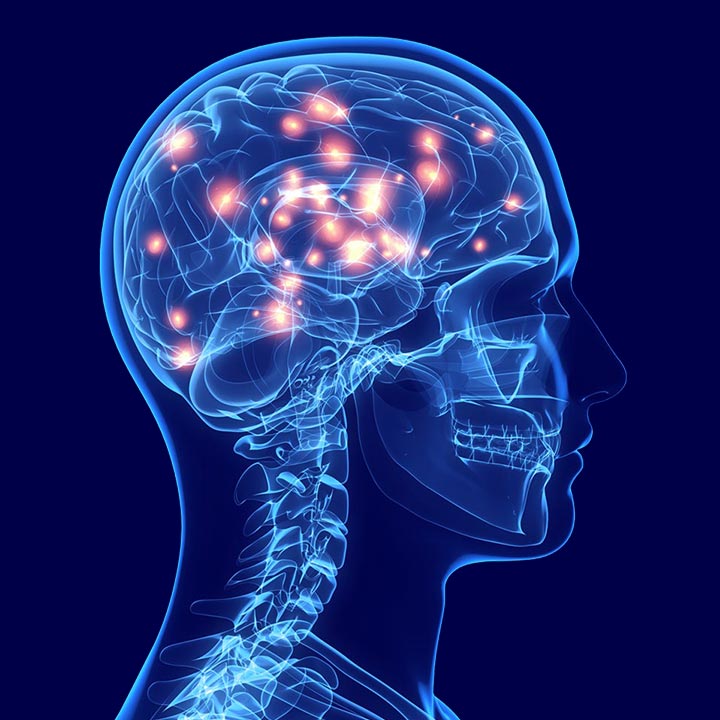
Therapeutic inhalations with hydrogen gas as an innovative treatment for degenerative diseases of the cortical and subcortical nuclei of the brain
» Alzheimer’s disease, Dementia, Disease with diffuse Lewy bodies
The antioxidant action demonstrated both in the one discussed here and in numerous other scientific studies is the most important and valuable quality of the innovative hydrogen therapy. Thanks to this property, hydrogen provides a neuroprotective effect – i.e. protection of nerve cells from pathogenic factors.
It is characteristic of neuroprotectors that they help to reduce the development of severe and irreversible neurological complications. The therapeutic course with hydrogen inhalations would lead to a reduction of the pathophysiological and biochemical disorders in nerve cells.
Hydrogen Therapy
home
HBS10 is a device for hydrogen water and hydrogen inhalation with which everyone can easily apply hydrogen therapy at home. The device produces a minimum of 450 milliliters of hydrogen gas per minute. This covers the internationally accepted standards for hydrogen inhalation therapy.
Proudly made in Bulgaria,
based on more than 10 years of experience in the production and development of hydrogen technologies
Chromatographically studied at BAS
CE certified
Tested and Recommended by H2HUBB, USA
A pilot study on the effect of
Hydrogen Therapy for Alzheimer’s Disease
Conducted by the Department of Neurology and Neurosurgery at Nishijima Hospital, Ohoka, Japan and the Department of Neurology at Juntendo University, Tokyo, Japan.
Published on March 13, 2023 in the special issue “Therapeutic Potential of Molecular Hydrogen”.
Eight patients and their relatives took part in the pilot open study. The Alzheimer’s Disease Assessment Scale-Cognitive Subscale was used to assess the severity of the disease. The starting level of the participants was between 19 and 40 points. After the baseline assessment, participants began a therapeutic course of hydrogen inhalation twice a day for one hour for 6 months.
Patients are selected based on their diagnosis, in line with the recommendations of the National Institute on Aging-Alzheimer’s Association Group. To assess the effect of hydrogen therapy, the Alzheimer’s Disease Rating Scale – cognitive subscale was used. Assessments were conducted at the third and sixth months of the pilot study.
Study participants inhaled hydrogen twice a day for one hour through a face mask. They were monitored by their relatives, who also provided them with moral support, and the hydrogen concentrators were checked monthly for malfunctions.
Inclusion criteria were: 1. sum of points on the evaluation scale more than 10 points and less than 50 points; 2. treatment with at least one anticholinesterase medication or NMDA receptor antagonist; 3. routine treatment in a neurological dementia clinic; 4. exclusion criteria was the presence of chronic lung disease; 5. the patients underwent nuclear magnetic resonance.
The study was conducted in a manner consistent with the “World Medical Association Code of Ethics” (Declaration of Helsinki). The study protocol was approved by the ethics committee of Nishijima Hospital, and the study was registered at the website: http://www.jmacct.med.or.jp

Study timeline
(for a period of 18 months)
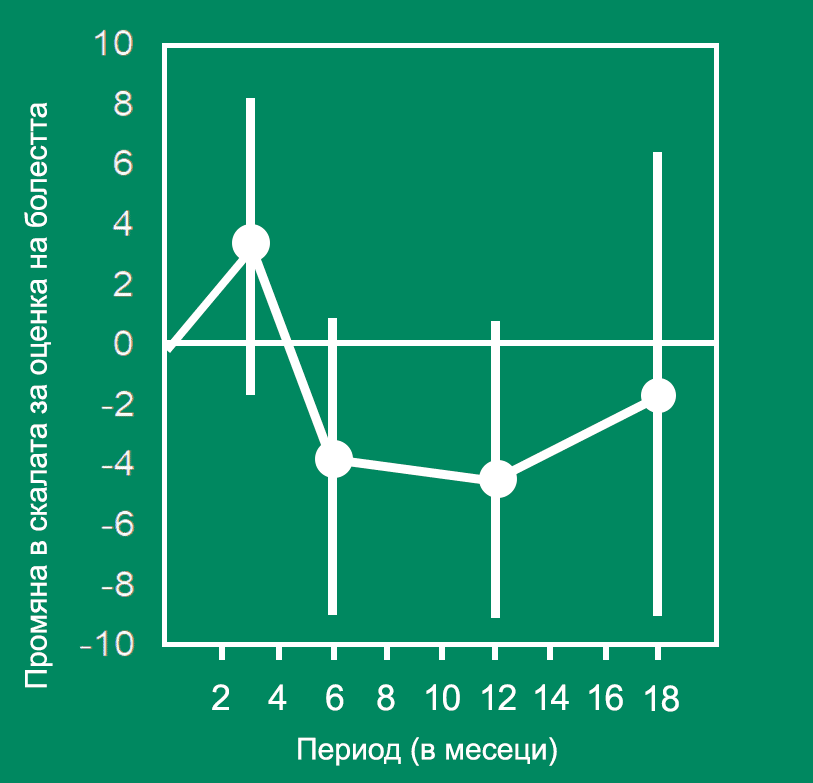
During the first three months, there is a tendency towards a slight increase in the rating scale points (deterioration). After this period, there was a severe drop in scores, reaching a maximum 6 months after stopping hydrogen inhalation and a slight decline from 12 to 18 months into the patients’ follow-up period. .It is noteworthy that the results are maintained for about a year after discontinuation of hydrogen therapy.
In addition to the Alzheimer’s disease assessment scale, so-called diffusion tensor imaging was also used – that is, a magnetic resonance technique that uses anisotropic diffusion to assess the organization of the brain’s white matter.
The imaging study conducted also confirmed the improvement in Alzheimer’s disease and also demonstrated the retention of this improvement 1 year after the completion of the hydrogen inhalations.
Conclusion
Although with a small number of participants, the pilot study clearly demonstrated improvement in Alzheimer’s disease as measured by the most commonly used rating scale and the MRI-based technique (diffusion tensor imaging).
The improvement is not only temporary, the results are maintained for up to a year after the hydrogen treatment.
Here, the fact that hydrogen inhalations are characterized by a good tolerance and safety profile also comes into consideration.
General benefits of
Hydrogen Therapy
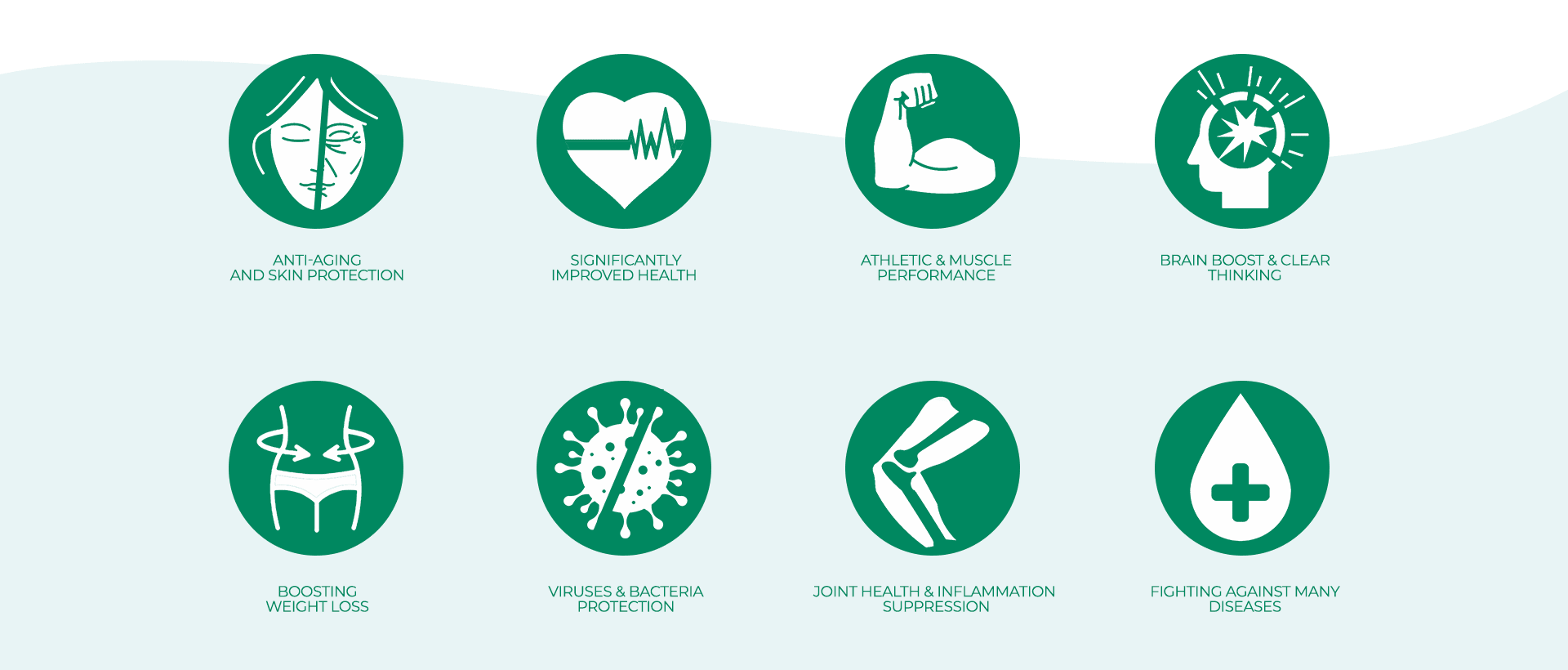
What is
Hydrogen Therapy?
In essence, “Hydrogen Therapy” is an additional regular intake of hydrogen by drinking hydrogen-enriched water and/or inhaling hydrogen-oxygen gas (also known as “Brown gas” or “HHO gas”).
The so-called “Hydrogen water” is structured water saturated with hydrogen, which has been proven to hydrate the body up to 6 times faster than all other types of water (mineral, spring, tap, etc.).
Drinking Hydrogen Water can help neutralize free radicals.
Even more effective is the direct inhalation of hydrogen, since in this way about 100 times more of it is taken.
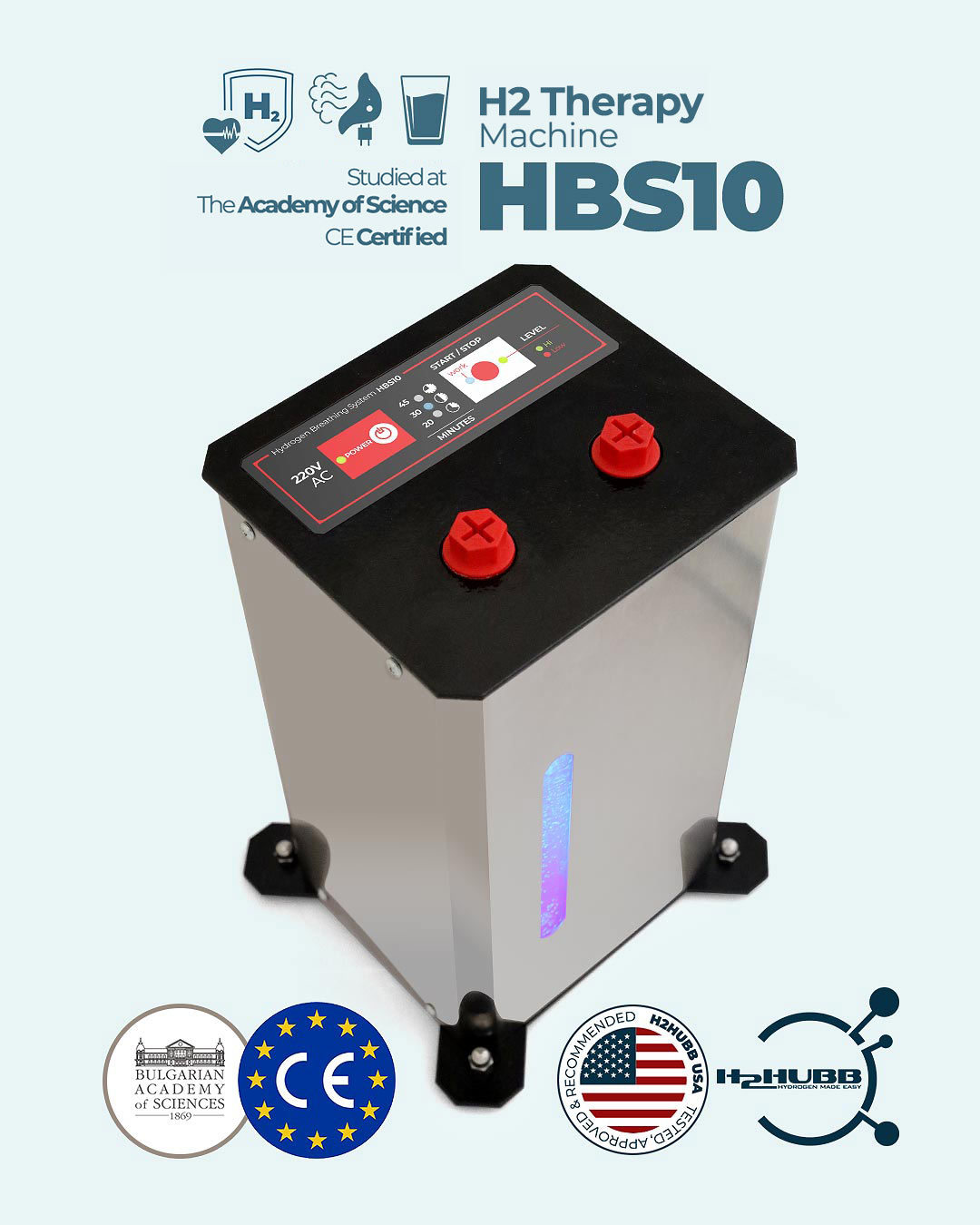
The best-selling Bulgarian device in the world
for Hydrogen Therapy
OF 2-in-1 TYPE
- for the production of Hydrogen Water,
- for Breathing with Hydrogen
Designed and manufactured in Bulgaria based on previous experience of over 10 years in the production of hydrogen equipment.
Each device complies with BDS.
A conformity assessment procedure was carried out for the model.
Chromatographically studied at BAS.
Marked with European initials for CE conformity.
Tested and Recommended by H2HUBB, USA.
Video Presentations
What distinguishes HBS10 from other devices forstrong, Hydrogen Therapy (video presentation)
Apparatus for Hydrogen Therapy HBS10
(video instruction for charging and operation)
Hydrogen water – when, how and how much to drink?
(video presentation)
Apparatus for Hydrogen Therapy
(shared by users)

